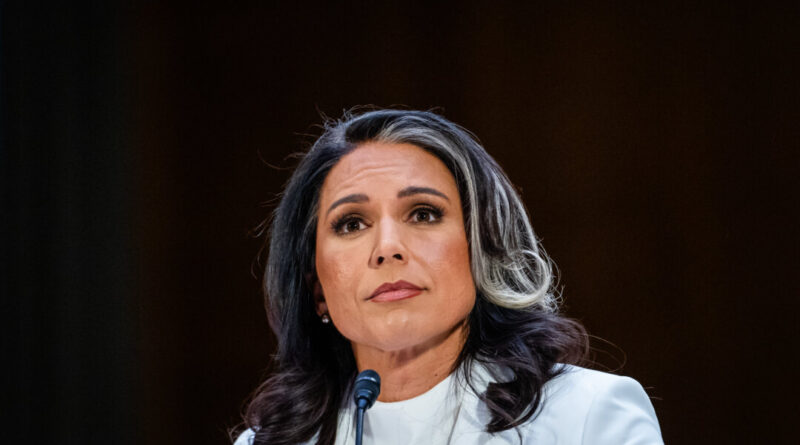Senate Committee Endorses Gabbard’s Nomination as Director of National Intelligence
The confirmation process will now proceed to the Senate floor.
The Senate Select Committee on Intelligence has endorsed former congresswoman Tulsi Gabbard’s candidacy for the role of the next director of national intelligence.
The closed-door vote, which was narrowly decided at 9–8, signals that Gabbard’s nomination will advance to the Senate floor for a full vote, where she is expected to secure confirmation as President Donald Trump’s intelligence director.
Lawmakers from both parties expressed doubts regarding Gabbard’s qualifications for the position, particularly due to her past support for intelligence leaker Edward Snowden and her previous opposition to legislation permitting the federal government to indirectly collect intelligence on American citizens without a warrant.
The committee members overwhelmingly labeled Snowden a “traitor” and argued that controversial surveillance laws significantly contribute to national security, despite potential risks to civil liberties for Americans.
During her testimony, Gabbard made it clear that she would not consider pardoning Snowden unless given explicit direction from the president, and she recognized that the former NSA contractor broke the law but refrained from labeling him a “traitor.”
She expressed her support for Snowden’s efforts to unveil undisclosed government programs that involved tech companies aiding in the surveillance of American citizens.
“My prior statements reflect the egregious and illegal programs exposed by that leak,” Gabbard noted.
“We must not allow individual vigilantes within the intelligence community to act unilaterally regarding how and when to disclose our nation’s secrets,” she added.
When asked about her previous stance on section 702 of the Foreign Intelligence Surveillance Act (FISA), Gabbard indicated she had reassessed her opinion, now viewing the law as essential for national security.
“Section 702 offers critical tools and capabilities vital for our national security,” Gabbard affirmed during the hearing, pointing out that “significant reforms to FISA have been implemented” since her congressional tenure.
Former Director of National Intelligence Avril Haines testified last year that section 702 provided intelligence agencies with “unique insights,” and that excessive regulation would hinder the necessary agility to address emerging threats.
Gabbard has been a vocal critic of various intelligence agencies, accusing them of “bureaucratic mission creep and empire-building.”
“For too long, flawed, inadequate, or weaponized intelligence has resulted in costly failures and compromised our national security and the God-given liberties enshrined in the Constitution,” Gabbard stated during her testimony to the committee last month.
“Guaranteeing the safety, security, and freedom of the American people transcends partisan politics and is a mandate of leadership,” she concluded.




